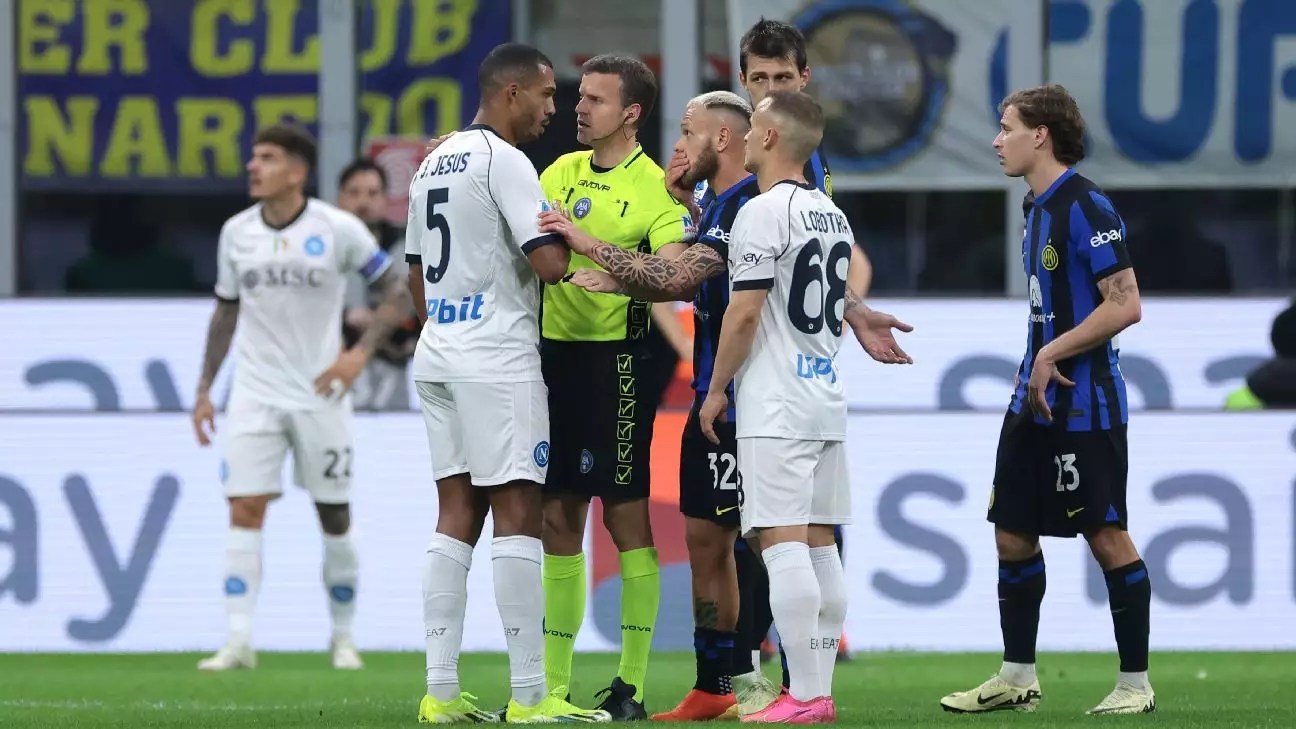The case of Inter Milan defender Francesco Acerbi being accused of racially abusing Napoli’s Juan Jesus raises serious questions about the handling of racism in football. The fact that there was not enough evidence to sanction Acerbi despite the allegations is concerning. It sends a message that players can get away with racial abuse as long as there is not concrete proof, which is a dangerous precedent to set.
The decision by the Italian football federation prosecutor to not take action against Acerbi highlights the need for clear and stringent legal and ethical standards in dealing with such issues. It is not enough to simply rely on testimonies and images from matches. There should be a thorough investigation process that takes into account all available evidence before reaching a conclusion.
The impact of the lack of sanctions on Acerbi on Juan Jesus cannot be understated. The fact that he was visibly upset during the match and felt the need to report the incident to the referee shows the emotional toll that racism takes on victims. Juan Jesus wearing a ‘Keep Racism Out’ badge further emphasizes the need for a strong stance against racial abuse in football.
The response from Inter Milan, who reportedly considered cutting ties with Acerbi if he was found guilty, is a step in the right direction. Clubs need to take a firm stance against racism and hold their players accountable for their actions. Similarly, the Italian football authorities need to reevaluate their decision-making process and ensure that justice is served in cases of racial abuse.
The case of Francesco Acerbi and Juan Jesus highlights the need for a more robust and proactive approach to dealing with racism in football. The lack of sanctions against Acerbi despite the serious allegations raises concerns about the effectiveness of the current system. It is imperative that clubs, players, and authorities take a strong stance against racial abuse and work towards creating a more inclusive and respectful environment in football.


Leave a Reply